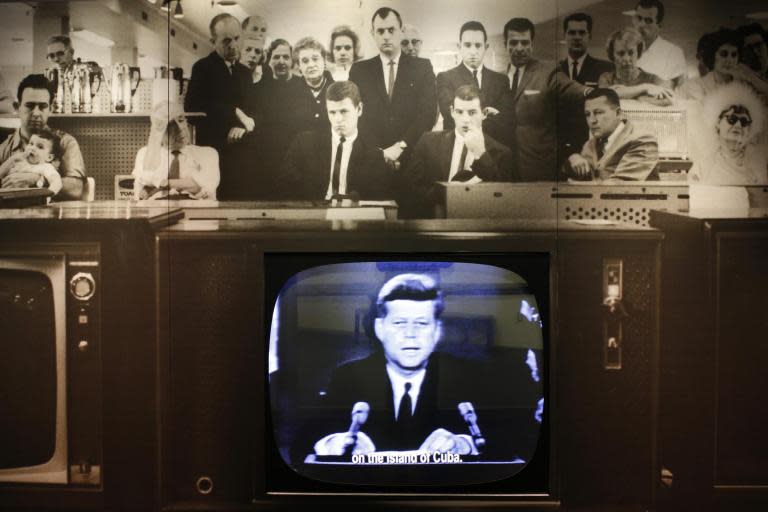JFK files: Many of most important and secret files kept from public, perhaps forever
The JFK files may have been released. But it's what hasn't been released that is making people most excited.
As promised, Donald Trump honoured a commitment in law that the documents should be released to the public this year. But many of them were kept secret after last minute tussles with the security services – leading to concerns that documents that show a conspiracy or cover-up are being kept from the public eye.
The president is thought to have intended to release all of the documents. But at the very last minute, US spy services forced him to leave some of them out, citing national security concerns.
But the notable missing documents – about 300 of them – have now become the focus of conspiracy theorists who claim that the US establishment is still working to keep what happened on that day secret.
Neither Mr Trump or the federal agencies that forced the documents to be kept secret made any comment about why that had happened. In the absence of that, it is presumed that the documents could cause either operational or reputational problems for the US secret services – a presumption that will do very little to allay fears that the JFK assassination was a conspiracy, or was covered up.
"As long as the government is withholding documents like these, it's going to fuel suspicion that there is a smoking gun out there about the Kennedy assassination," said Patrick Maney, a presidential historian at Boston College.
"I have no choice," Mr Trump said in a memo, and said that the documents might cause "potentially irreversible harm" to national security if they were to be released now. With that, he said he could only release 2,800 of the files, and hope that the rest would be allowed through in April.
The extra secret files will now go under a six-month review process, led by the security services. The President said that agencies should be able to block the release of any documents "only in the rarest cases".
Despite having months to prepare for disclosures that have been set on the calendar for 25 years, Trump's decision came down to a last-minute debate with intelligence agencies — a tussle the president then prolonged by calling for still more review.
The delay sparked a round of finger-pointing among agencies and complaints that Trump should have released all records.
Roger Stone, a sometime Trump adviser who wrote a book about his theories on the assassination, urged Trump to review personally any material that government agencies still want to withhold. Trump should at least "spot check" any extensive redactions to make sure agencies are not "dabbling in acts of criminal insubordination," Stone said in a statement.
Much of Thursday passed with nothing from the White House or National Archives except silence, leaving unclear how the government would comply with a law requiring the records to come out by the end of the day — unless Trump was persuaded by intelligence agencies to hold some back.
White House officials said the FBI and CIA made the most requests within the government to withhold some information.
Trump ordered agencies that have proposed withholding material related to the assassination to report to the archivist by next March 12 on which specific information meets the standard for continued secrecy.
That standard includes details that could cause "harm to the military defense, intelligence operations, law enforcement or conduct of foreign relations," Trump wrote in his order. The archivist will have two weeks to tell Trump whether those recommendations validate keeping the withheld information a secret after April 26.
The full record will still be kept from the public for at least six months — and longer if agencies make a persuasive enough case for continued secrecy.
The collection includes more than 3,100 records — comprising hundreds of thousands of pages — that have never been seen by the public. About 30,000 documents were released previously — with redactions.
Whatever details are released, they're not expected to give a definitive answer to a question that still lingers for some: Whether anyone other than Oswald was involved in the assassination.
The Warren Commission in 1964 concluded that Oswald had been the lone gunman, and another congressional probe in 1979 found no evidence to support the theory that the CIA had been involved. But other interpretations, some more creative than others, have persisted.
Additional reporting by Associated Press

 Yahoo News
Yahoo News 

